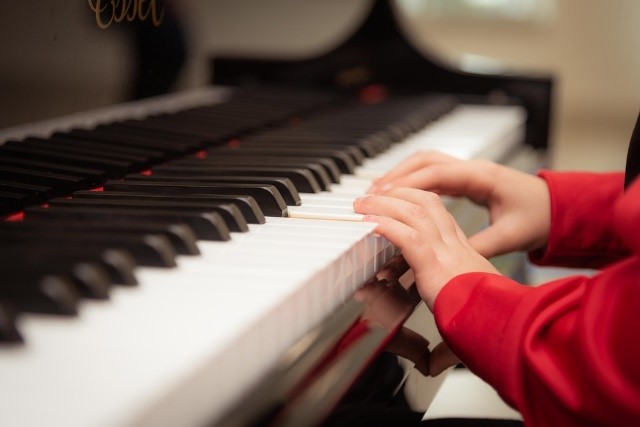Have you ever wondered how many books you read in a month? How many books do you read in a year? If you believe the statistics, on average, a person reads about a thousand books in a lifetime, but there are those who are not interested in literature at all. The reasons for this indifference may be quite different, but the result is one and, alas, not happy. Psychologists and sociologists from different countries are confident: a person who voluntarily refuses to read, depriving themselves of a mass of benefits. What are they? Read in our article.
Read to Expand Your Horizons
He who said that knowledge – is the power, was absolutely right. Life forces us to adapt to the circumstances offered, and often only years of accumulated skills and knowledge help us cope with them. Despite the fact that the modern world offers us a lot of alternative sources of information, books are still the best of them. Thanks to them you can not only learn something new but also learn a qualitative analysis of this or that phenomenon. By the way, the British scientists found out that our mental abilities directly depend on the number of books read during our whole life. Surprisingly, there is a clear correlation between reading skills and a person’s cognitive abilities.
Read to Develop the Imagination
The art of cinema deprives our imagination of the opportunity to work to its full potential-the directors and producers have taken care of the visualization of the text for us. As for books, the reader has to engage his or her imagination and literally create his or her own world based on what the author offers. So, reading not only expands our knowledge in different areas, but also allows us to develop creativity and out-of-the-box thinking, and these skills can be very useful.
Read to Develop Emotional Intelligence
The more often we pick up a book, the more we learn about the world around us, but it is good to learn how to apply this knowledge in real life. The intellectual base is good, and the opportunity to use it at the right moment is invaluable. Regular reading allows you to better formulate your own thoughts. With books comes the opportunity to expand your social circle, become an interesting conversationalist, and begin to enjoy interacting with the world. Not to mention that reading positively influences our consciousness, polishes our speech, and forms our own view of things.
Music and Reading Skills
If you’re a music lover, you probably know that music helps calm your nerves, relieve stress, add excitement to your workout, and bring back old memories.
Listening to music has many benefits, both obvious and hidden. It engages the emotional and intellectual centers of the brain and has an almost incredible ability to bring people together. When we listen to music, there is much more going on in the body than just the auditory processing of sounds. Studies show that music helps us cope with pain as well as enhancing physical and mental health.
Listening to music improves the parts of the brain that are responsible for reading, literacy, reasoning, and math skills. The study evaluated the effects of music on the performance of a curriculum designed to improve the writing skills of 25 children between the ages of 4 and 5. The results showed that listening to music significantly increased their abilities.
Reitz (1976) believes in using traditional folk songs as the bridge between spoken language and written language. When students come to the classroom they have already developed strategies for decoding and responding to spoken language. When children begin reading textbooks they apply these same strategies. Beginning reading textbooks do not always correspond with the spoken language of children. He found that less than a third of the written structure of trade books corresponded to the most common patterns appearing in the oral language of the children. Folk songs are an ideal tool because the written language often matches the spoken language structure of children. Singing songs with children can provide them with a musical framework for the recall and singing back of language patterns. These patterns can then be transferred into textbook reading situations. By drawing on ample experiences, the teacher strengthens skills the child already possesses and helps the student apply them to new situations.

Benefits of Music
Music can be used to help students learn the alphabet, the sounds of letters, develop phonemic awareness, build phonics skills and vocabulary, and more! There are many songs to teach grammar skills and folks have used nursery rhymes as songs to teach basic spelling patterns and print conventions. Besides listening to songs, singing songs, and watching music videos, some teachers have their students rewrite familiar songs as a lesson to learn sounds or rhymes.
Pronunciation
Pronouncing words correctly is a major part of being able to read out loud. Music is a great way to address pronunciation issues because it will teach children to divide words into units. Since singers often draw out words for musical purposes, a child will be able to hear the units of that word much more clearly. Not only can music improve reading skills in children by slowing words down, but it can also provide them with the opportunity to practice speaking quickly. Rap music is a great way to reduce stuttering and teach children to say difficult words more quickly.

That’s It!
By getting acquainted with the world of art and music, a person learns to look at the world, recognize its beauty, acquires certain moral values and reference points. Harmonious development of the personality takes place. Moreover, art and songs influence the development of reading skills, which is so important these days! Therefore, our task is to create conditions in which a person can not only get acquainted with the masterpieces of world art but also be able to find creative expression.
